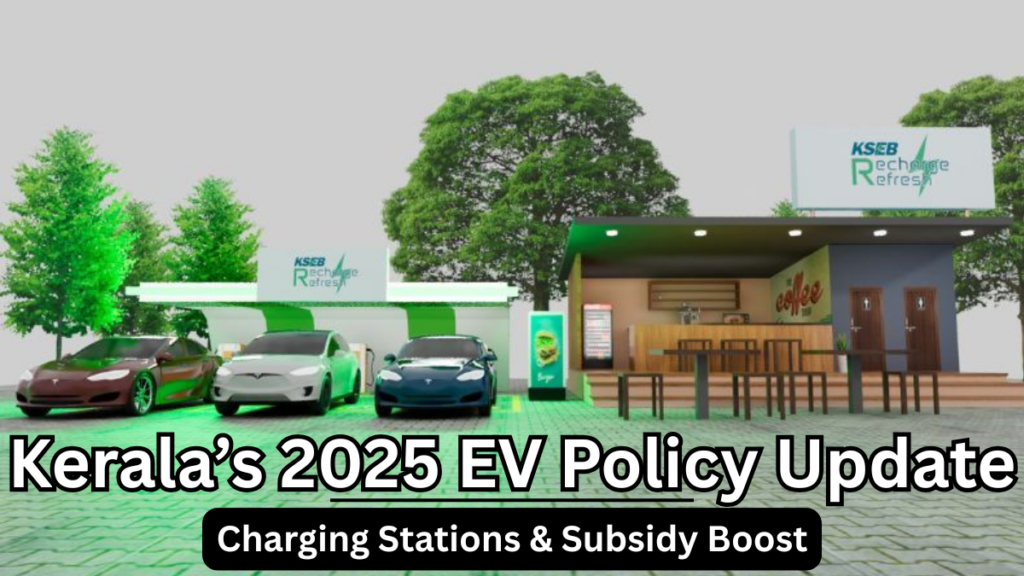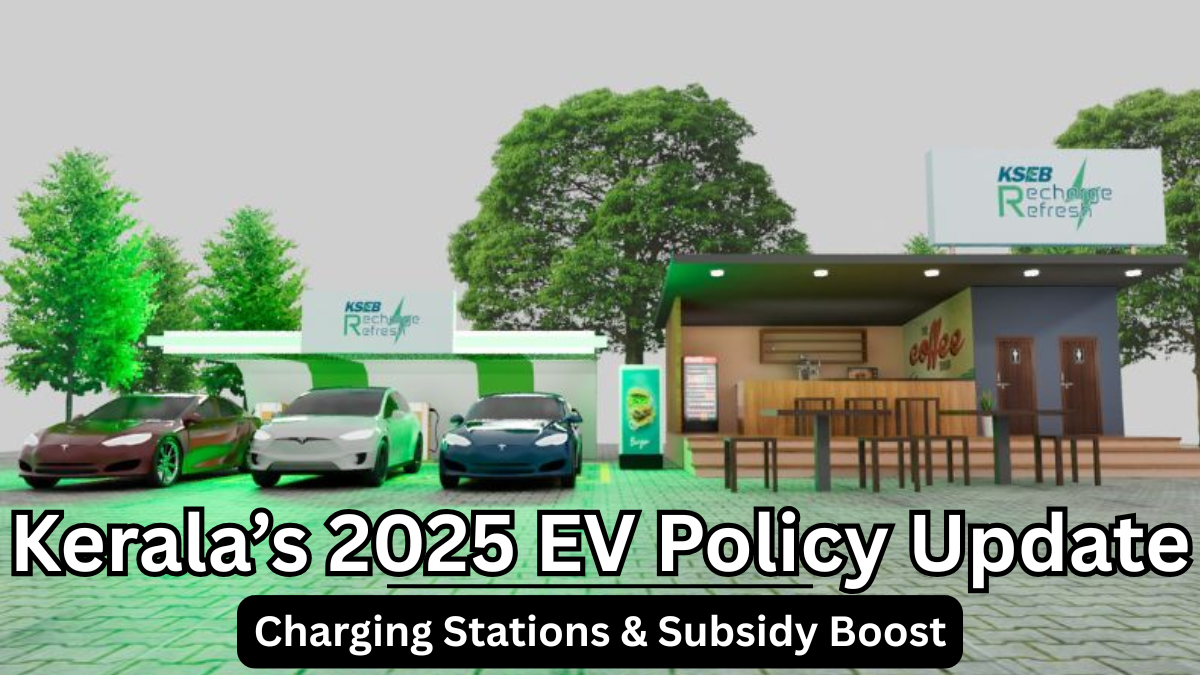Kerala is taking big steps toward creating a greener future with its Kerala EV Policy 2025 update. The state is pushing for rapid adoption of electric vehicles (EVs) by expanding its charging network and offering even more attractive subsidies.
Let’s explore what this means for residents, EV buyers, and businesses in Kerala.

Key Highlights of Kerala EV Policy 2025
-
Major focus on expanding the EV charging network across urban and rural areas
-
Increased subsidies for electric two-wheelers, three-wheelers, and buses
-
Special incentives for fleet operators and e-commerce companies adopting EVs
-
Aiming for 100% electric public transport by 2030
Charging Network to Get a Major Boost
One of the biggest challenges for EV users is the lack of sufficient charging points. Kerala is addressing this head-on by committing to a robust charging network under the updated policy.
What’s Planned
-
Installation of 1,000+ public charging stations across the state
-
Charging stations at key locations such as malls, highways, petrol stations, and residential complexes
-
Fast-charging options to reduce waiting time for users
-
Private sector participation encouraged to build and operate stations
| Expansion Goals | Details |
|---|---|
| Total New Charging Stations | 1,000+ by 2025 |
| Focus Areas | Highways, malls, residential hubs, petrol stations |
| Charging Speed | Mix of standard and fast chargers |
| Policy Support | Incentives for private charging station operators |
The Kerala EV Policy aims to make charging your EV as easy as filling up petrol.
Attractive Subsidies to Encourage EV Adoption
The Kerala EV Policy 2025 also introduces higher subsidies to make electric vehicles more affordable for everyone.
Updated Subsidy Details
-
Increased upfront subsidies for two-wheelers, three-wheelers, and electric buses
-
Special discounts for fleet buyers and logistics companies
-
Priority support for small businesses adopting EVs for last-mile deliveries
| Vehicle Type | Old Subsidy | New Subsidy (2025) |
|---|---|---|
| Two-wheelers | ₹10,000 | ₹15,000 |
| Three-wheelers | ₹30,000 | ₹40,000 |
| Buses | ₹30 lakh | ₹40 lakh |
The goal is to make EVs more accessible and affordable, boosting demand while supporting local manufacturers.
Kerala’s Long-Term EV Vision
The Kerala EV Policy isn’t just about 2025. The state is setting long-term goals for a fully electric future.
Future Plans
-
All public transport vehicles to be electric by 2030
-
Ban on petrol and diesel two-wheelers by 2030
-
Promote battery swapping stations
-
Encourage green jobs in the EV manufacturing and maintenance sectors
This vision aligns Kerala with global sustainability goals and positions it as a leader in India’s green mobility push.
Why Kerala’s EV Push Matters
Kerala’s aggressive EV roadmap is set to:
-
Reduce air pollution significantly
-
Cut fuel dependency and save foreign exchange
-
Boost the local EV industry
-
Create new business opportunities in the charging network and green energy sectors
FAQs
1. What are the key changes in the Kerala EV Policy 2025?
The Kerala EV Policy 2025 focuses on expanding the charging network across the state and increasing subsidies for EV buyers, especially for two-wheelers, three-wheelers, and buses.
2. How many new charging stations will Kerala add?
Kerala plans to install over 1,000 new public charging stations by 2025, ensuring better coverage across cities, towns, and highways.
3. Who can benefit from the updated subsidies?
The updated Kerala EV Policy offers higher subsidies to individual buyers, fleet operators, logistics providers, and businesses using electric vehicles for last-mile delivery.
4. What is Kerala’s long-term goal for EVs?
By 2030, Kerala aims for 100% electric public transportation and plans to phase out petrol and diesel two-wheelers, focusing on a fully green charging network and clean energy solutions.
Click here to learn more
